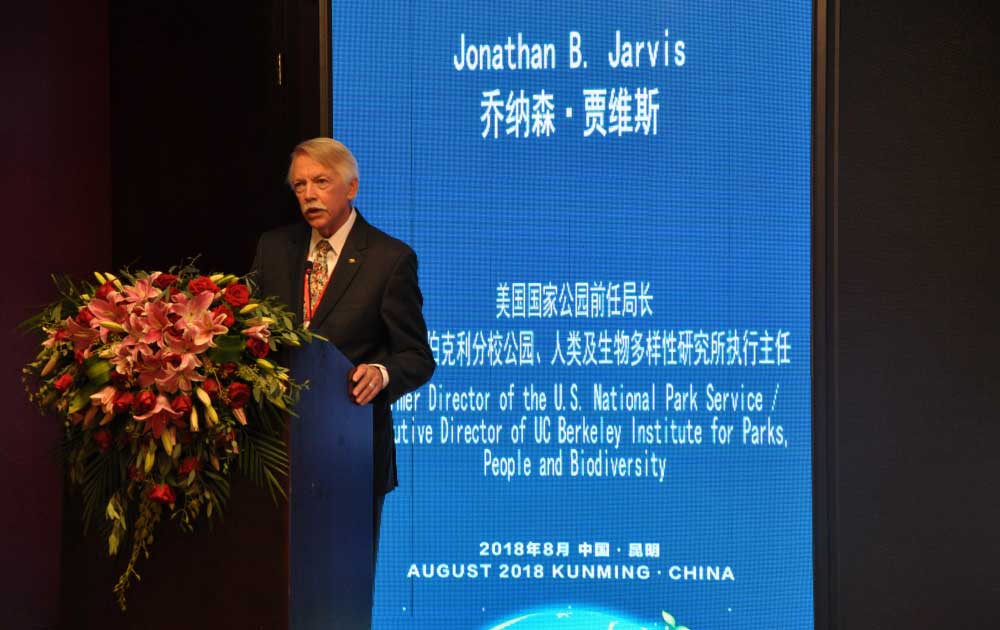
Jon Jarvis traveled to Kunming, China, to speak at a symposium on the establishment of a national parks system in the country.
It’s official. The People’s Republic of China (PRC) has decided this year to establish a National Park Management Bureau with 10 pilot National Parks under the auspices of the National Forestry and Grassland Administration. At a mid-August symposium in Kunming, Yunnan Province—the first of its kind—speakers addressed the establishment of national-level management authority over discrete protected areas to be designated as national parks.
During the two-day symposium, speakers from various levels of Chinese government and academia referred to President Xi Jinping’s statement that a National Park System is critical to “eco-civilization” and to instilling national pride in, “Beautiful China.” Also cited was the pioneering work of the United States National Park Service (NPS), as Chinese and international guest speakers invited the audience of scientists and policy makers to prioritize ambitious conservation goals as part of the planning process.
In his capacity as Executive Director of UC Berkeley’s Institute for Parks, People and Biodiversity, Jonathan B. Jarvis—who served 40 years with the NPS and was its eighteenth director from 2009 to 2017—presented on legal and conservation issues facing the project. With much discussion still to be had around topics ranging from preferred legal frameworks and funding options to the role of government at the national and local level, a clear commitment was nevertheless voiced to move beyond the initiative’s pilot phase. Such commitments would usher in a full program by 2020, to be followed by a complete National Park System by 2030.
Jarvis, whose trip was sponsored by the Paulson Institute, noted the enthusiasm among participants for a partnership between UC Berkeley, the Paulson Institute, the National Forestry and Grassland Administration, and Tsinghua University around capacity building for the National Park Management Bureau. As for next steps, there was particular interest from the Paulson Institute and Chinese officials working with the UC Berkeley team on three specific programs and projects. These include a financial feasibility study and a field evaluation of the park management and conservation plan for San Jiangyuan National Park (Three River Source) on the Tibetan Plateau.
The third potential output is the seeding of a professional training program in 2019 for Chinese National Park administrators that would usher in a more comprehensive curriculum and certification program. Jarvis stated upon his return from China “This new initiative is very exciting as when China decides to do something, they do it well. With the long history of UC Berkeley using science to enhance stewardship of parks and protected areas in the US and around the world, this is a great opportunity to assist China with their new national park system. Using the successful Beahrs ELP as a model, we hope to build a training program for China’s National Park leaders.”
